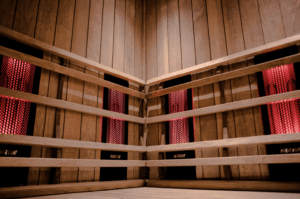We live in unprecedented times – self-isolation and government-enforced ‘social distancing’ is the new order of the day around the world to combat the Covid-19 pandemic. People from all walks of life are being impacted, and there are real concerns about jobs, livelihoods and the health and wellbeing of ourselves and our loved ones.
Anxiety is a feeling of unease and fear of what is to come, and it is perfectly reasonable to be feeling this way right now. Our body naturally reacts in this way when faced with stressful situations. We all feel varying degrees of anxiety at some point in our life. But, for some, this is not an easy feeling to manage and can lead to several other conditions, such as phobias, post-traumatic stress disorder (PTSD) and social anxiety disorders.
Anxiety is real, and for people that are already prone to anxiety and depression, this period of global uncertainty with the Covid-19 pandemic can be downright scary. The World Health Organisation (WHO) recently released a mental health guide for people who are self-isolating.
How can you safeguard your mental and emotional wellbeing?
Acknowledge Your Reality
The most critical step in a journey to overcoming anxiety is to acknowledge your present-day reality. Only by accepting your reality today can you begin to take steps to move forward in the right direction.
Self-Care
While it is tempting to sit around all day in your pyjamas eating junk food and binge-watching on Netflix, you cannot do that for days on end. Take care with your diet, hydrate properly, exercise every day and try to connect with nature if possible. You can achieve self-care in many ways, from practising mindfulness and self-compassion to starting a gratitude journal and serving others through acts of charity, humanity and kindness.
Quality sleep can go a long way towards helping with anxiety, and the opposite is also true, as not getting enough sleep can increase the risk of developing health conditions such as hypertension and heart attacks.
Staying Connected
Talking to someone that you trust about your fears and anxiety can help to relieve the burden weighing on your mind. These days, family and friends are only one click away by phone, email or social media. However, some people may feel more comfortable speaking to a qualified person.
The great news is that there is no shortage of support available. Seeking professional help from a qualified therapist or counsellor can be a life-changing moment and here are some useful resources to point you in the right direction.
Finding qualified therapists and counsellors
Online Directories
A great place to start is checking out online directories (see links below). Read up on therapist profiles to make sure you feel comfortable with their level of experience and the type of therapy they offer. You will be able to find out about their background, qualifications, as well as their field of interest and specialism. Ask about waiting times to be seen, the length of the sessions, pricing and the possibility of online therapy sessions.
Clarity, Comfort and Communication
Most importantly, you will need to find a therapist that you are comfortable opening up to about your thoughts and feelings. A simple way to check is to have a telephone consultation rather than email, as this may help you get a better sense. There is no one size fits all solution to this, and a lot comes down to your personal preference. Do your homework before committing, so that you have clarity, comfort and communication. You may also want to check with your workplace if they offer an Employee Assistance Programme.
Confidentiality Agreements
Entering into a therapy and counselling session usually involves sharing private and sensitive information. As you might expect, maintaining client confidentiality is part of the ethical code of conduct for a professional therapist/counsellor. Before you begin therapy, you will most likely be requested to sign a confidentiality agreement.
Useful resources for you to find help
Emergency Help
If you find yourself in a crisis, please see the below resources:
- Call 999 or visit your local Accident & Emergency and ask for the nearest crisis resolution team for people in severe distress.
- Text SHOUT to 85258 (UK) – Give us a shout is a free text service available 24/7.
- Call 116 123 (UK) for free – Samaritans is available 24/7 for confidential, emotional support for free. Whatever you are going through, you can give them a call any time.
Helplines for Information
If you find it comforting to speak to someone on the phone rather than online.
- Mind info line on 0300 123 3393 (UK)
- Mind legal line on 0300 466 6463 (UK).
- Call Rethink on 0300 5000 927 (UK)
- NHS choices for free on 111 (UK)
Helplines for Emotional Support
- The Samaritans – 116 123 (UK) – or email jo@samaritans.org.uk
- Shout – Text Shout to 85258 (UK).
- CALM National helpline for men – 0800 58 58 58 (UK)
- Childline
- Women’s Aid (abuse)
- Citizen’s Advice – 03444 111 444 (UK)
- Call the Parents Helpline – 0808 802 5544 (UK)
- YoungMinds Crisis Messenger service – Text YM to 85258 for free 24/7
Online Directories of Therapists, Counsellors & Psychiatrists
Find an accredited professional in the following online directories:
- Counselling Directory
- BACP Register
- UK Council for Psychotherapy
- The British Psychological Society
- British Psychoanalytic Council
- Timewith
- Mind
- NHS (free service, but there may be waiting times)
Online Therapy Services
- Mind
- Mental Health Foundation
- Better Help (app & online therapy)
- Harley Therapy (in-person and online)
- Rethink Mental Illness
- Turning Point
- Mental Health Matters
- Samaritans
- The Mix
- Childline
- Youth Access Directory of Services
- Youth Wellbeing Directory
- Young Minds’ Parent’s Helpline
- Hub of Hope
Other Online Communities & Useful Resources
Online communities provide a safe place to listen, share your concerns and be heard.
- Elefriends by Mind
- Peer support by the Mental Health Foundation
- You can help your child cope by the CDC
- Coping with a Disaster or Traumatic Event by the CDC
- Emergency Responders: Tips for taking care of yourself by the CDC
- Coping with stress during an infectious disease outbreak by SAMHSA
- Taking Care of Your Behavioural Health during an Infectious Disease Outbreak by SAMHSA
- Helping Children Cope with Emergencies by the CDC
- Coping After a Disaster – activity book for children aged 3-10
- Rehab 4 Addiction – helping patients who suffer from alcohol, drug and behavioural addictions
- The Recovery Village – COVID-19 and substance abuse
Final Word
Please ask for help. You are not alone in fighting anxiety. Compassion and support services are all around you and only a click away. Stay calm and positive, as this pandemic too shall pass.















